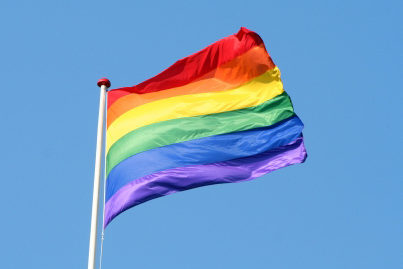Today, the ICJ released a briefing paper on the Transgender Persons (Protection of Rights) Bill, 2016, asking that it be withdrawn and revised to be consistent with international human rights law, and directions of the Indian Supreme Court.
The briefing paper answers key questions about the history of this Bill, what measures it seeks to introduce, outlines the ICJ’s key concerns about the Bill as currently drafted – including key omissions – in light of directions of the Supreme Court and applicable international human rights law.
“It is important to have a law guaranteeing transgender rights in India,” said Sam Zarifi, ICJ Asia director.
“However, any such legislation must be consistent with the spirit and directions of the Supreme Court in the case of NALSA v UOI and with international human rights law”.
The Transgender Persons (Protection of Rights) Bill, 2016 was approved by the Cabinet last month.
It was introduced in the Lok Sabha (lower house of Parliament) on 2 August 2016 and is currently pending.
The Bill’s definition of who is “transgender person”, the process of gender recognition it outlines, as well as the lack of adequate provisions on employment, education, anti-discrimination measures, and penalties for offences committed, are deeply problematic and at odds with the Supreme Court’s directions in the judgment of the Supreme Court in the case of NALSA v UOI.
“While a comprehensive transgender rights bill is long overdue in India, the problems and omissions in the current Bill will undermine the progress made on transgender rights in India,” Zarifi said.
“The government must immediately withdraw the Bill, meaningfully consult with the transgender community, and substantially revise its provisions such that it comprehensively protects the rights of all transgender people in India,” he added.
Background
In 2014, in the case of NALSA v UOI, the Supreme Court affirmed transgender persons’ right to their self-identified gender, directed the government to grant legal recognition of the same, and to take specific steps to ensure equality and non-discrimination for transgender persons.
States and government departments have begun to take piecemeal measures to implement the directions in the NALSA judgment, however several aspects of the decision remain unimplemented. See ICJ Briefing Paper on the implementation of the NALSA decision .
In April 2015, the Rajya Sabha (Upper House of India’s Parliament) passed the Rights of Transgender Persons Bill 2014, which was a private member’s Bill. Simultaneously, the government was developing its own draft of a transgender rights bill, which has now been introduced in Parliament. For more details see here.
INDIA-TG BILL CRITIQUE-Advocacy-Analysis brief-2016-ENG (full text, PDF)

